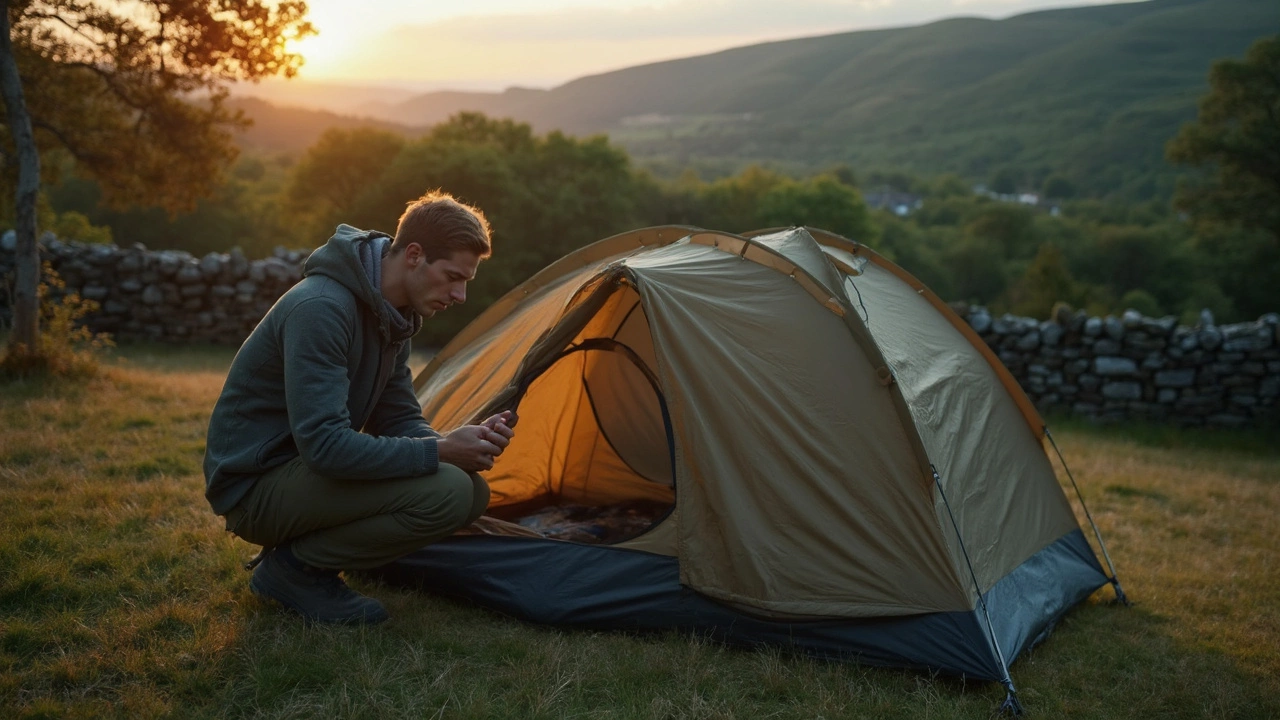Eco-Friendly Camping: Simple Steps for a Greener Outdoor Stay
If you love the woods but hate the thought of leaving a mess, you’re in the right spot. Eco‑friendly camping isn’t a hard rulebook; it’s just a handful of habits that make a big difference. Below you’ll find real‑world tips you can start using tomorrow, whether you’re pitching a tent in the Lake District or staying in a glamping pod near Preston.
Gear Up the Green Way
First thing’s first: your kit. Swap single‑use items for reusable gear. A stainless‑steel water bottle beats plastic, and a silicone food bag replaces zip‑lock bags. Look for a sleeping bag with a recycled‑fill rating – most major brands now list the percentage on the tag. If you need lights, go solar or crank‑powered; they charge during the day and never need batteries.
When you buy a stove, choose a fuel that burns cleanly, like isobutane, and practice the ‘burn right’ trick: use the smallest flame you need and keep the pot covered. That cuts fuel use and reduces soot, which can scar rocks and leaves. Finally, pack a small bottle of biodegradable soap for dishes and a quick rinse. It breaks down faster than regular detergents, so it won’t linger in streams.
Leave No Trace on the Trail
Leave No Trace isn’t a buzzword; it’s a mindset. Before you set up camp, check if the site allows fires. If fire is forbidden, bring a portable alcohol stove – no fire pits, no ash. When you do cook, clean up immediately and pack all trash back out, even the bits that look like “natural” debris.
Stick to established trails and campsites. Creating a new path digs into soil and can damage plant roots. If you’re in a fragile area, consider a hammock with tree straps – no stakes, no holes. And always respect wildlife: store food in sealed containers, keep a safe distance, and never feed animals. Those small actions keep ecosystems balanced for the next camper.
Glamping can be an eco‑friendly option too, as long as you choose the right spot. Many Lancashire farms now offer solar‑powered pods or tiny cabins built from reclaimed timber. These setups give you comfy beds and hot showers without the heavy carbon footprint of a big hotel. Look for places that market low‑impact practices, like rainwater harvesting or local sourcing of food.
Finally, think about travel. Carpool to the campsite or use a bike if the location is close. If you’re driving, fill the tank before you go – you’ll use less fuel than stopping midway. For longer trips, a small electric vehicle can get you to a nearby trailhead, then you walk or cycle the rest of the way.
Eco‑friendly camping isn’t about perfection; it’s about making smarter choices one step at a time. Pack reusable gear, respect the land, choose low‑impact sites, and you’ll leave the wilderness just as you found it – only better because you helped protect it.

Stealth Camping: What It Is and How It Changes the Way We Travel
Stealth camping is all about spending the night in unexpected places without drawing attention—usually for free and with a light environmental footprint. This article breaks down what stealth camping means, why people are drawn to it, and how it connects with sustainable travel. We’ll get real about what to expect if you want to try stealth camping yourself, including top tips and things nobody tells you before you go. Plus, how this low-impact approach is changing the way travelers think about eco-friendly adventuring.
Continue Reading
Cowboy Camping: Embrace the Wild with Eco-Friendly Sleeping Under the Stars
Cowboy camping is the art of sleeping under the stars without a tent, focusing on simplicity and a connection to nature. Unlike traditional camping, it requires minimal gear and leaves a smaller environmental footprint. This practice taps into the raw adventure of the great outdoors while fostering an intimate relationship with the natural world. Those who embrace cowboy camping appreciate the unobstructed view of the sky, listening to the symphony of nature. It’s an eco-friendly choice for adventurers seeking an authentic wilderness experience.
Continue Reading